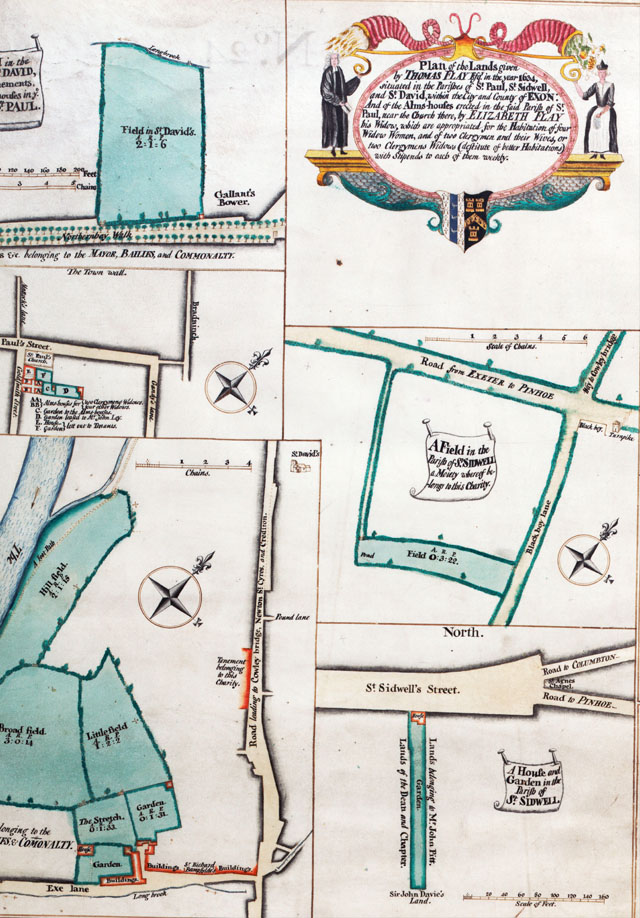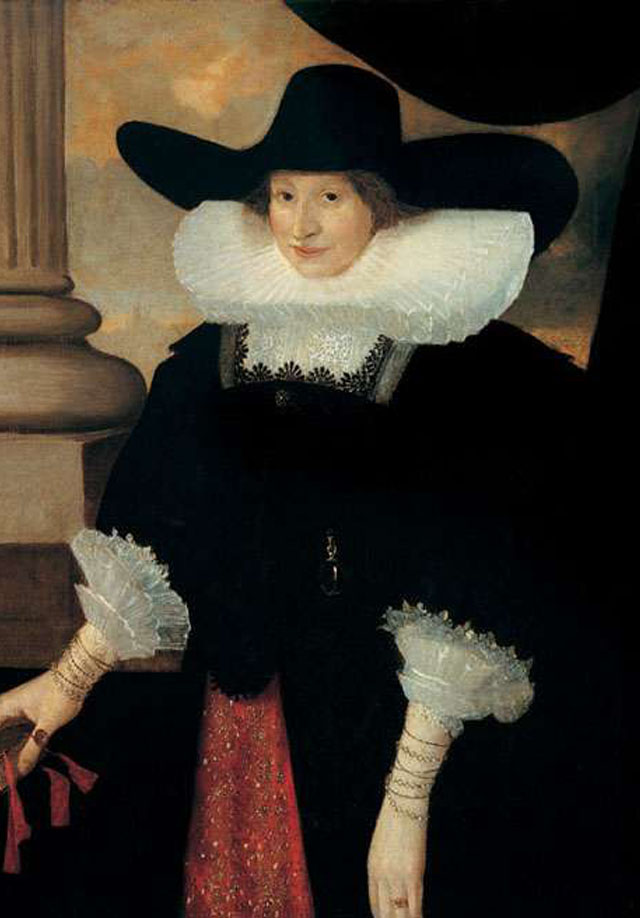Researched by Hannah Reynolds
In 1634, Thomas Flaye, an Exeter merchant, bequeathed to his wife Elizabeth a parcel of land, of about half an acre, on St David’s Hill. Thirty-nine years later the site was leased to another Exeter merchant who built a domestic dwelling there. In 1838 that building was given by Mrs Wilkinson to the West of England School for Partially Sighted Children as a residential school and from 1965 it has been the St David’s Community Centre.
Thomas Flaye was born in Cullompton in 1585 and was the second son of a merchant class family entitled to bear arms. He was licensed to practice both medicine and surgery in 1628 and would probably have been described at the time as an apothecary. The social rise of apothecaries has been attributed to the rapid increase of exotic drugs in the early seventeenth century; apothecaries could combine their medical practices with sound commercial contracts.
Flaye married well. His wife, Elizabeth Spicer, was the daughter of one of the most prominent men in Exeter’s Chamber (local Council) of the time. They had no children, which may have encouraged them to engage in charitable works during their lifetime as well as leaving land and property to benefit the poor after their death.
Thomas Flaye was one of twelve merchants who were granted, in 1620, ‘the house, site, circuit and precinct’ of St John’s Hospital, a charitable education and religious institution situated near what is now Next in the High Street. It had been dissolved during the reign of Henry VIII.
They refurbished the building for the education of Exeter children in Latin and Greek and used the building as a storehouse for grain for poverty relief. They founded the first free Grammar School in Exeter which is now Exeter School.
Flaye had served as the city’s sheriff, mayor and alderman before dying in 1634. He also left to his wife Elizabeth ‘diverse lands and tenements’ for her to erect ‘four convenient houses within the parish of St Paul’s… for the habitation of four poor widow women’ allotting them each twelve pence weekly.
Flaye had served as the city’s sheriff, mayor and alderman before dying in 1634. He also left to his wife Elizabeth ‘diverse lands and tenements’ for her to erect ‘four convenient houses within the parish of St Paul’s… for the habitation of four poor widow women’ allotting them each twelve pence weekly.
She lived to a great age, making many other charitable bequests, including bequeathing to the Chamber of Exeter in 1673 a ‘silver basin and ewer parcel gilded’ to be used by the mayor in Exeter successively for ever. When Elizabeth died, in 1673, she was buried next to her husband in Exeter Cathedral.

